Trending
-
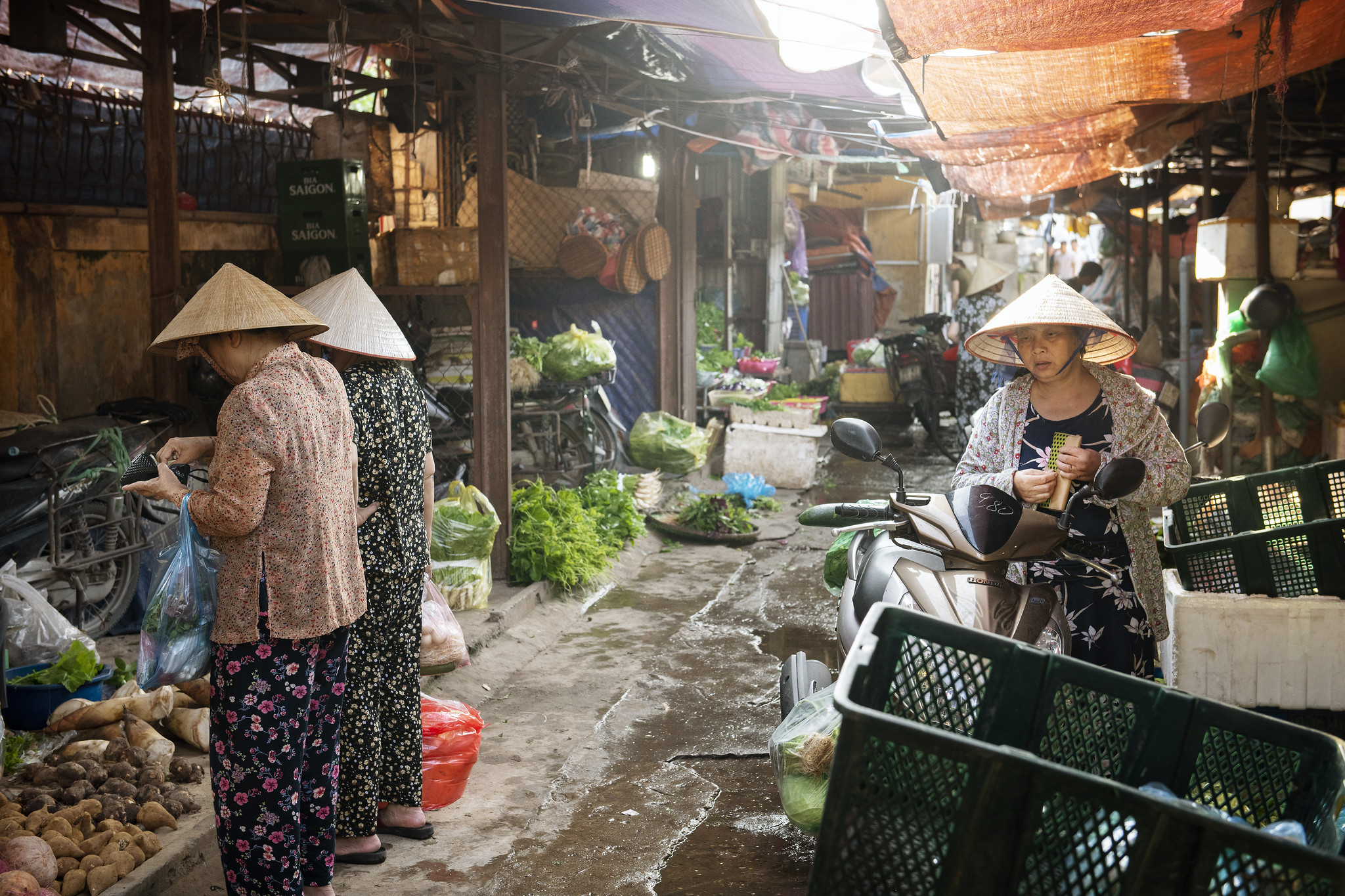
Evaluating impacts: Lessons from food systems interventions across Africa and Asia
Transforming food systems is promising but complex, requiring strong evidence and rigorous evaluations to ensure effective interventions.
-
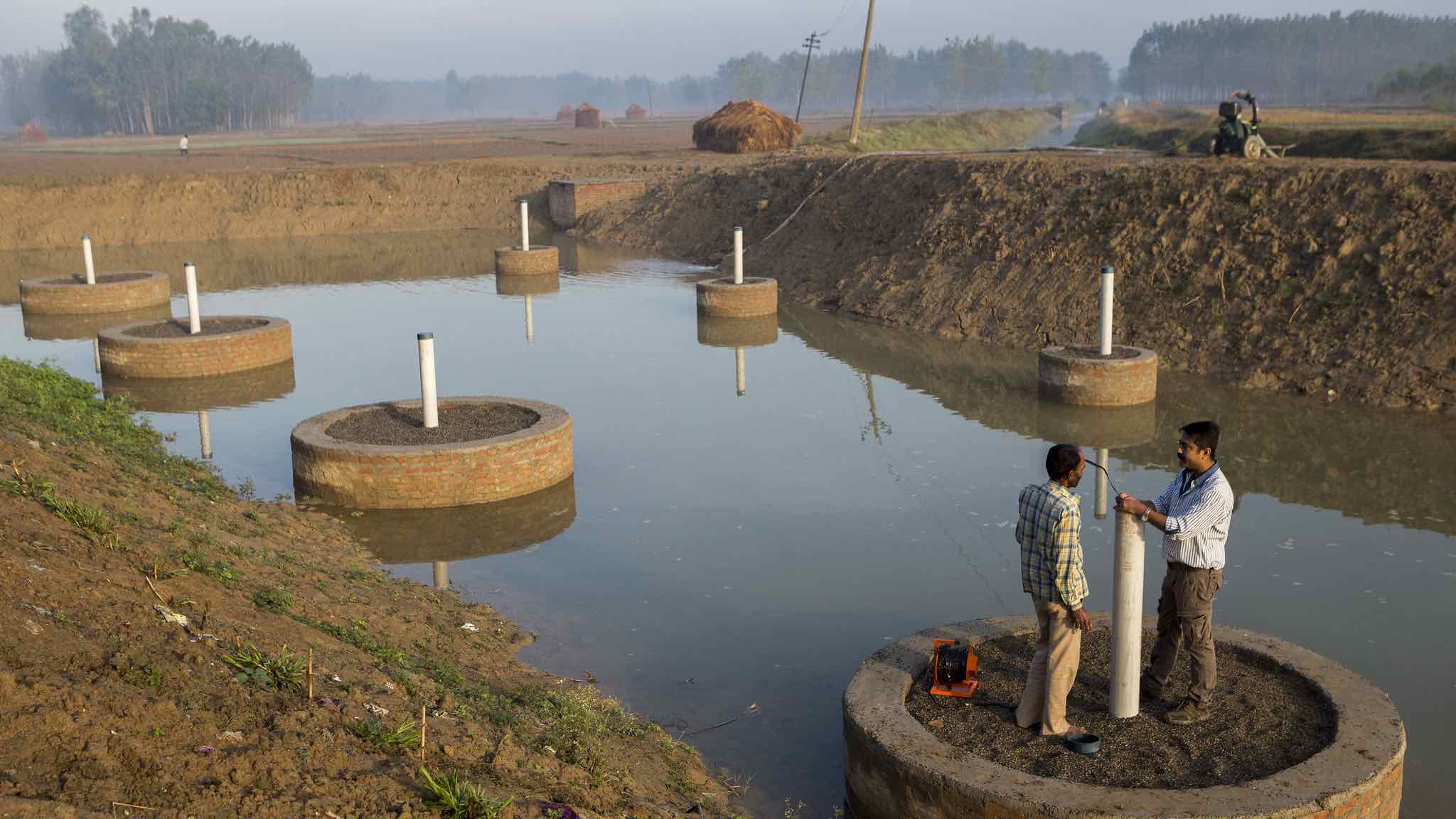
Groundwater conservation and food security: Navigating pathways to sustainable agriculture
Tradeoffs must be carefully managed.
-
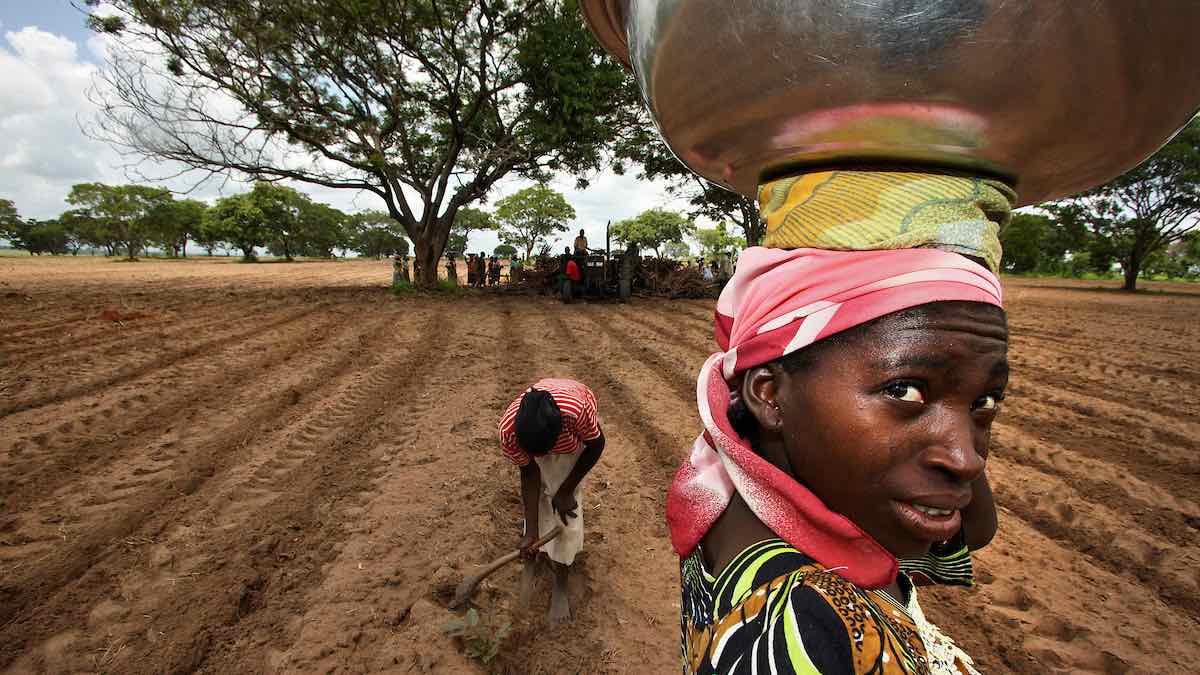
Workshop: Applying the Women’s Empowerment in Agrifood Governance (WEAGov) tool to support gender-responsive policy innovation across Africa
Collaborating to make food systems more inclusive.
-
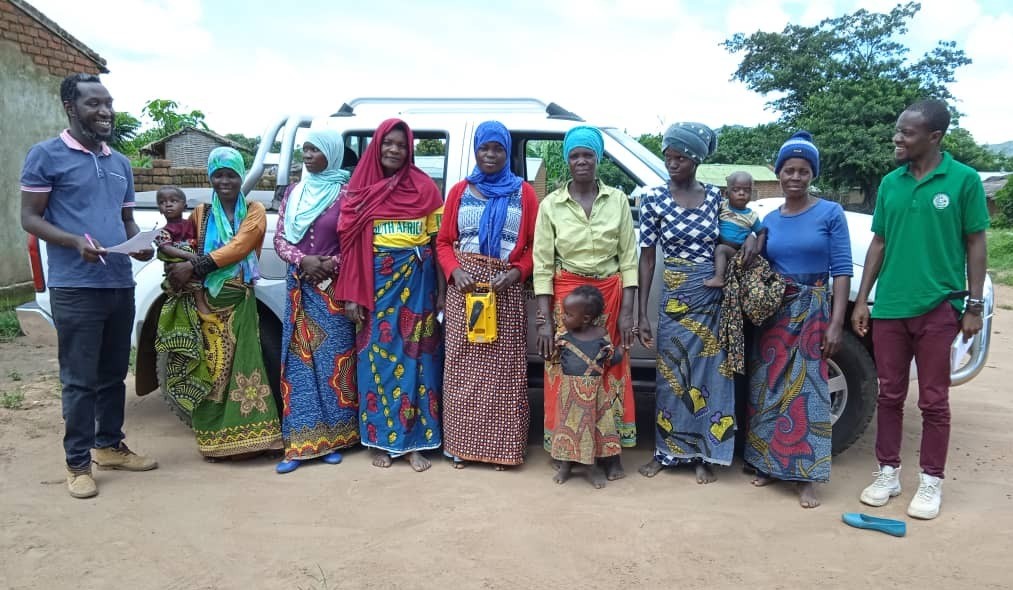
Enhancing farm productivity and rural livelihoods through ICT interventions in Malawi
New opportunities as mobile phone use grows in farming areas.
-

Opportunities and challenges for coffee production in Papua New Guinea’s highlands
Survey insights on production, pests, and marketing.
Experts in Our Field
Global, regional, and national food systems face major challenges and require fundamental transformations. More than ever, responding to these challenges will require a systems-oriented, multidisciplinary approach to reshape food systems so they work for all people sustainably.
526
experts across the world
70+
countries where we work
#1
in the field of Agricultural Economics
20,000+
research outputs
Meet a researcher
With his deep expertise in global agricultural policy, Joe Glauber has been a pivotal contributor to IFPRI’s Ukraine War blog series. Through his insightful analysis and nuanced understanding of the conflict’s impact on food systems, Joe has shed light on the intricate linkages between agriculture, geopolitics, and food security in the region. Don’t miss the opportunity to explore his thought-provoking contributions that offer invaluable perspectives on this complex issue.


From our YouTube channel
Dan Gilligan, Unit Director (Introduction)
Dan Gilligan, the Poverty, Gender, and Inclusion unit director discusses how PGI addresses gender, poverty, food insecurity, and low levels of nutrition, health, and education.
Our Events
-

32nd International Conference of Agricultural Economists
The triennial International Conference of Agricultural Economists (ICAE-2024), centred on the theme “Transformation Towards Sustainable Agri-Food Systems” is scheduled from August 2-7, 2024, in New Delhi, India. The conference offers a distinctive platform, providing a golden opportunity for the agricultural academic institutions and researchers to convene in person, exchange knowledge, and actively contribute to the…
-
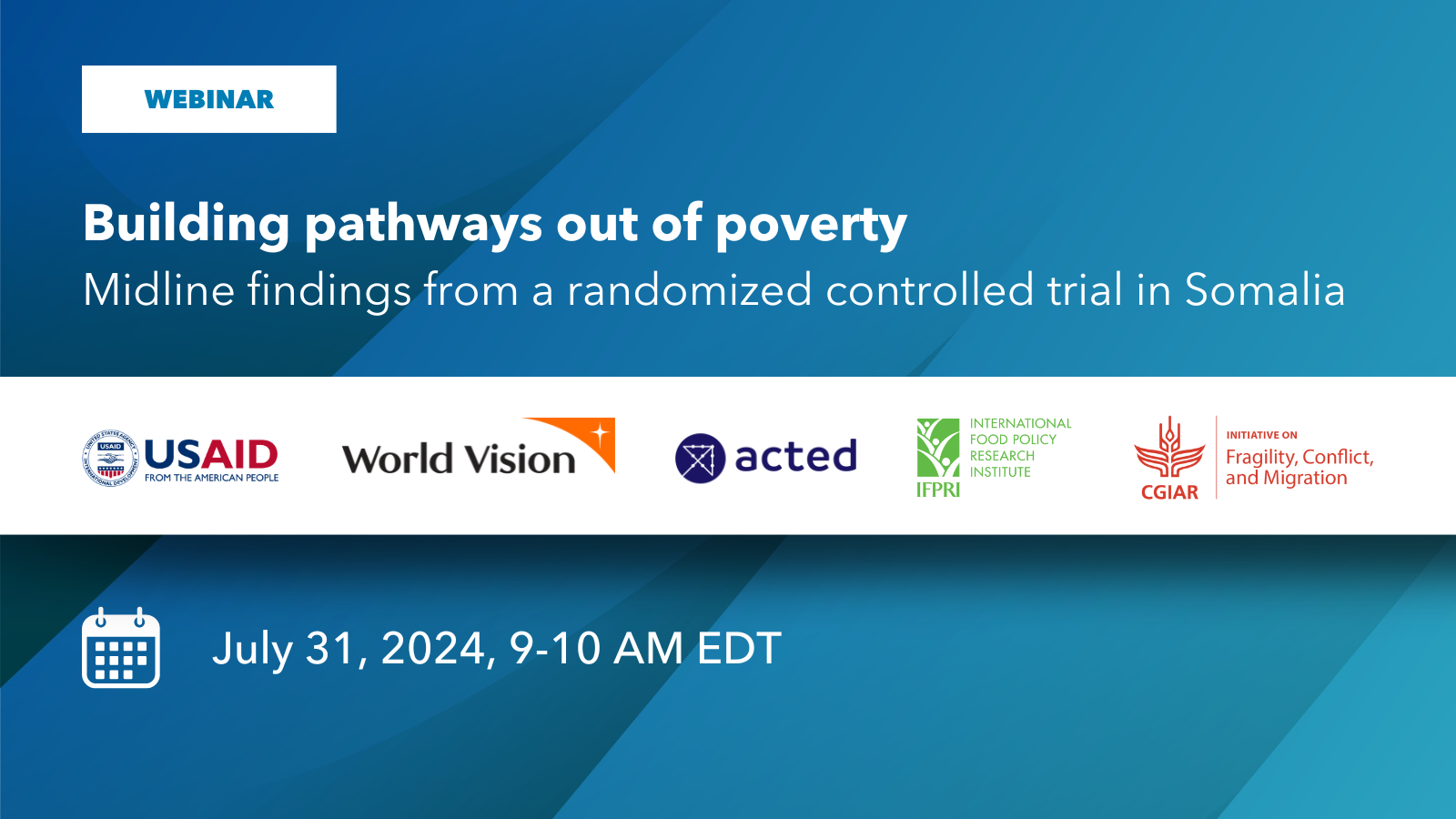
Building pathways out of evidence in Baidoa: Midline findings from a randomized controlled trial
Click HERE to join this event on July 31, 2024 from 9:00am to 10:00am Washington, DC time (EDT). This webinar will provide evidence around the effects of the Ultra Poor Graduation program implemented in Baidoa, Somalia by World Vision and funded by the U.S. Agency for International Development (USAID)’s Bureau for Humanitarian Assistance (BHA). The…
-

2024 Agricultural & Applied Economics Association (AAEA) Annual Meeting
IFPRI is participating in the 2024 Agricultural & Applied Economics Association (AAEA) Annual Meeting on July 28 – July 30, 2024. The Agricultural & Applied Economics Association (AAEA) is a not-for-profit association serving the professional interests of members working in agricultural and broadly related fields of applied economics. AAEA members are primarily employed by academic…
Recent publications
Journal Article
Fostering social inclusion in development-oriented digital food system interventions
2024Steinke, Jonathan; Schumann, Charlotte; Langan, Simon J.; Müller, Anna; Opola, Felix Ouko; Ortíz Crespo, Berta; Etten, Jacob vanJournal Article
Causes and consequences of child growth faltering in low-resource settings
2023…more
Cai, Wilson; Li, Haodong; Nguyen, Anna; Pokpongkiat, Nolan N; Djajadi, Stephanie; Seth, Anmol; Jung, Esther; Chung, Esther O; Jilek, Wendy; Subramoney, Vishak; Hafen, Ryan; Häggström, Jonas; Norman, Thea; Brown, Kenneth H; The Ki Child Growth ConsortiumJournal Article
“It doesn’t matter at all—we are family”: Titling and joint property rights in Myanmar
2024Lambrecht, Isabel Brigitte; Synt, Nang Lun Kham; Win, Hnin Ei; Mahrt, Kristi; Win, Khin Zin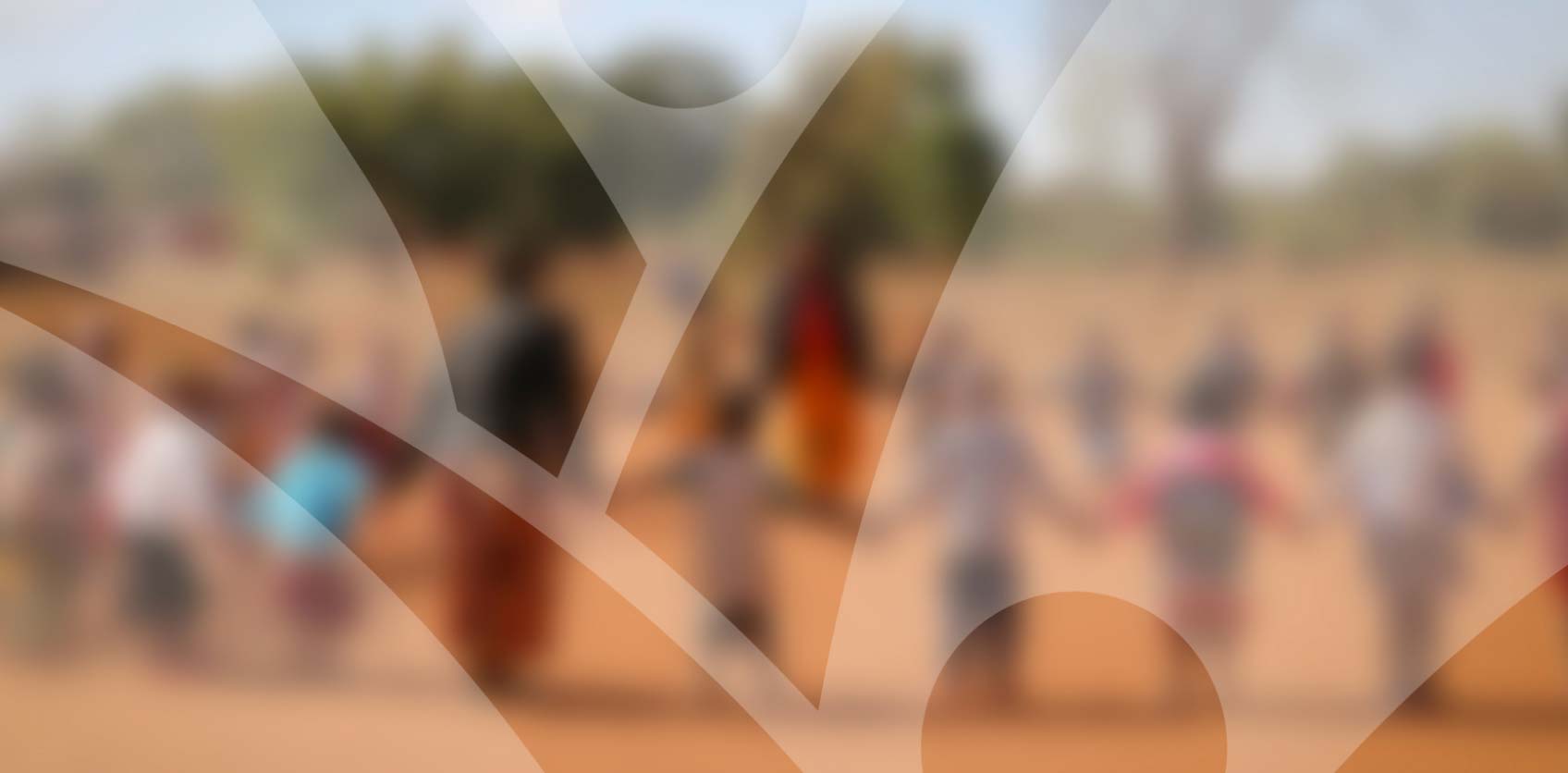
Child Nutrition in Malawi

Community-based childcare centers (CBCCs) are a key platform to roll out Malawi’s National Early Childhood Development policy. At these centers, families and community members come together to provide childcare services and meals for young children. The Nutrition Embedded Evaluation Program (NEEP) intervention was developed to use CBCCs for promoting child health and nutrition. The approach integrated local knowledge and guidance from experts at the University of Malawi and Save the Children to provide trainings on nutrition and agricultural production, linking with micro-lending program, and distributing seeds of nutritious foods to households.
IFPRI and Save the Children implemented a rigorous impact evaluation to see whether this approach was effective and could be replicated or scaled up across Malawi. In a new visual story, Aulo Geli, Amy Margolies, and Brian McNamara review the significant positive impacts of this program and lessons for the future.



